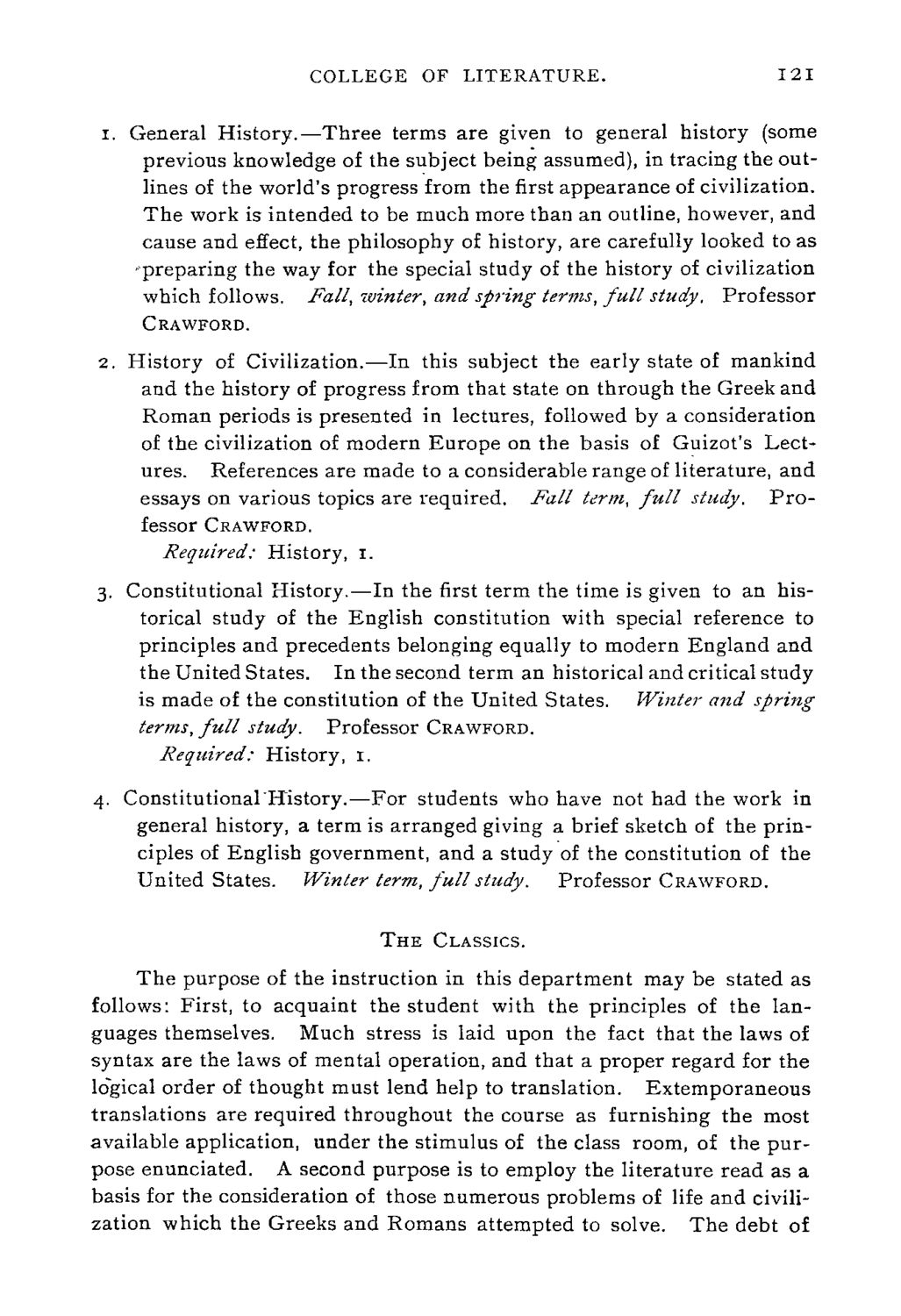| |
| |
Caption: Course Catalog - 1892-1893
This is a reduced-resolution page image for fast online browsing.

EXTRACTED TEXT FROM PAGE:
COLLEGE OF LITERATURE. 121 1. General History.—Three terms are given to general history (some previous knowledge of the subject being assumed), in tracing the outlines of the world's progress from the first appearance of civilization. The work is intended to be much more than an outline, however, and cause and effect, the philosophy of history, are carefully looked to as •preparing the way for the special study of the history of civilization which follows. Fall, winter, and spring terms, full study. Professor CRAWFORD. 2. History of Civilization.—In this subject the early state of mankind and the history of progress from that state on through the Greek and Roman periods is presented in lectures, followed by a consideration of the civilization of modern Kurope on the basis of Guizot's Lectures. References are made to a considerable range of literature, and essays on various topics are required. Fall term, full study. P r o fessor CRAWFORD. Required: History, I. 3. Constitutional History.—In the first term the time is given to an historical study of the English constitution with special reference to principles and precedents belonging equally to modern England and the United States. In the second term an historical and critical study is made of the constitution of the United States. Winter and spring terms, full study. Professor CRAWFORD. Required: History, 1. 4. Constitutional'History.—For students who have not had the work in general history, a term is arranged giving a brief sketch of the principles of English government, and a study of the constitution of the United States. Winter term, full study. Professor CRAWFORD. T H E CLASSICS. The purpose of the instruction in this department may be stated as follows: First, to acquaint the student with the principles of the languages themselves. Much stress is laid upon the fact that the laws of syntax are the laws of mental operation, and that a proper regard for the lo"gical order of thought must lend help to translation. Extemporaneous translations are required throughout the course as furnishing the most available application, under the stimulus of the class room, of the purpose enunciated. A second purpose is to employ the literature read as a basis for the consideration of those numerous problems of life and civilization which the Greeks and Romans attempted to solve. The debt of
| |